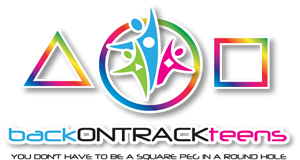
08 Aug You run the risk of developing negative behaviours if needs aren’t being met
If you are a regular reader of the Spark to your Success blog then you’ll know what attributes are needed to lead a balanced and enjoyable life. Onwards and upwards you could say! Why is it then that people find it so easy to slip into meeting their needs by adopting negative behaviours?
Not everyone values the six essential needs equally (those needs that we require to survive). One or two needs will always take priority and drive how you lead your life. The way in which you meet your needs might be different from the way your friend achieves the same needs.
Fast food is more convenient – developing negative behaviours
Let me explain by giving the example of fast food. A ‘certain’ thing in life is that you need food to survive. You might meet this need by whipping up a MasterChef culinary delight every night (or your mum or dad will), but how much easier would it be to pull up at a fast-food drive-thru? It might be illogical to you, but this might be exactly what your BFF would do.
At a fast-food drive-thru, the food is ordered and handed straight to you through a window – almost immediately. You waste no time plodding along supermarket aisles or rummaging through kitchen cupboards and the fridge for multiple ingredients to make a mouth-watering meal. And that’s before you peel, chop, cook and serve. Microwave or oven meals are easy to cook, but there’s no real preparation involved. It’s instant. You don’t even need a plate.
This is all true and you can’t argue with the facts. But what I would argue is that a fast-food diet or one that doesn’t include freshly prepared food and a variety of ingredients is far less healthy. There tends to be more sugar and fat in convenience foods to make them taste better and to prolong their shelf life.
More calories + less nutrition = no fuel for a healthy body
We discuss healthy eating in several Spark to your Success blogs because healthy food and staying hydrated are two fuels that help to keep you in flow. For now though, I hope you get the gist that a little effort brings a better outcome or at least a healthier outcome.
“Act the way you’d like to be and soon you’ll be the way you act.” Leonard Cohen

Undervaluing your needs
Eating fast or convenience food in the long term is a negative behaviour.
While it does meet the ‘certainty’ need that you are fed and fuelled to live another day, it suggests that you undervalue the need for health and wellbeing. Lack of nutrition, key vitamins and variety across the main food groups can lead to deficiencies and affect your body’s immune system.
Yet slipping into negative behaviours such as overly eating convenience foods happens because they often appear to be the easier option.
Yes, but I need this!
Overvaluing your needs is a dangerous game.
There will be times when a need is overvalued because it makes you feel better and therefore is the most desirable. A prime example to think about is the need for connection (love).
If you feel ill or come across an obstacle that you can’t control the outcome of, you may feel down or be restricted in some way from doing what you would normally do. In such situations, if you share your experience, perhaps by posting how you feel on social media, you may be showered with affection and gain extra attention from your friends and family. This extra attention will make you feel special. Of course, it will – even if you felt bad in the first place.
You feel significant because you are the centre of attention. Your needs are being met because you are ‘connecting’ with people and, on some level, you also meet the need for ‘certainty’. You’re sure that people will mollycoddle you because they have done so before.
You’ll even have a dose of ‘variety’ to bring excitement to the equation. If you’ve been ill, you may receive loving messages, cards and flowers, or time off school or work. But do you really want to be ill continually, just to gain the attention of others? It’s not a healthy long-term strategy, is it? It’s this type of behaviour that can lead to substance misuse through the perceived high it brings or the cover-up effect it offers against the void of unfulfilled needs.
“Behavior is what a man does, not what he thinks, feels, or believes.” Emily Dickinson
The behaviour battle
The battle between positive and negative behaviours happens in your nervous system as an unconscious process. It is in your unconscious mind that negative behaviours develop. If you talk to yourself often enough using unhelpful language such as I can’t, I won’t, or it’s too difficult, your mind will try to find the easiest way to meet your needs. Unfortunately, this could be in a negative way.
It helps to consider things, situations or relationships on a scale of one to 10. If you score a 10, amazing: that part of your life is sweet. If you score around four to six, you’re not exactly happy but you’re probably happy enough not to force a change. If a three or below springs to mind, life is pretty dull and you’re more likely to consciously make a change. Make sense?
This is especially true when you feel down and is why it’s so important to spot the signs and use techniques to lift spirits.
Try this exercise to see if you can determine where your behaviours sit – ask yourself, have you ever felt really low for a sustained period of time?
- What behaviours did you develop?
- How did you feel?
- What happened to make you feel this way?
- Which of the six needs did you meet?
- How did you overcome this dark period?
Beware or be aware of negative behaviours
Getting stuck in a negative behaviour can be beneficial in the short term because you’ll no doubt learn a lesson or progress in a different, more positive direction. But getting stuck in prolonged negative behaviours becomes addictive and can lead to:
- Overeating
- Overspending
- Excessive drinking
- Taking drugs
- Violence or seeking conflict
- Craving attention – sexual or otherwise.
Succumbing to anxiety, depression or anorexia, for example, or turning to substance abuse or antisocial behaviour are also ways to meet your needs. But these are far from positive, aren’t they?
It may seem illogical, but when the behaviour meets many needs at a high level at the same time you will sacrifice your standards to keep meeting your needs. If it becomes habit, it will become more difficult to change. Developing resilience to events that can lead to negative behaviour is the answer. You can achieve this by staying positive, building your confidence and being magnificent.
“Attitude is a little thing that makes a big difference.” Winston Churchill
Who is more at risk from negative behaviours?
The short answer is everyone. Yes, everyone is at risk from developing negative behaviours – even if they feel positive and balanced. We all have to meet our needs.
Think about a long-distance runner or gym fanatic – this could be you. You may think that exercise and body conditioning are positive behaviours, and they are, but addiction can arise from a need being met on a high level. In this example, the need to stay fit becomes an obsession, so you work out or run every day and probably increase exertion too. At some point, your body will start to show signs of wear and tear. Energy reserves and nutrients will divert from looking after your entire body, to serve only the organs and limbs needed to work out. Do you see where this could lead?
- Injury
- Distancing
- Alienation
- Performance high over enjoyment.
Even positive behaviours can turn addictive and therefore negative. When this happens, it’s not that you are a bad person, more a case that you are using poor behaviours to meet a need that is overvalued or undervalued.
![]() Think about the situations below. What needs do you believe would be met if:
Think about the situations below. What needs do you believe would be met if:
- You knew you could earn more money for the next six months?
- You had a set routine every day for the next week?
- A classmate threw a bottle of water across the room?
- A friend always had a date to go on each weekend?
- You were awarded an achievement certificate?
- A friend got an outrageous piercing?
- A classmate started to become a bully?
Which of these needs are positive and which are negative? If you feel some of them are negative, what would be a different and positive reaction to a similar situation? I’ll reveal the answers to this at some point later in the book.
Remember, people are not their behaviours. The behaviour is an outward symptom of an unmet need. Love the person – change the behaviour.
“Life is full of unexpected things but always remember that it’s hard to beat a person who never gives up.” Smrutishreee Avinash
Choose the life you want to lead
Being away of your behaviours in certain situations helps to give you the choice to peruse positive behaviours and change negative ones.
Please do connect with me on my social media channels to share your thoughts and ask questions. I’d love to help you work through any issues you encounter and to support you to steer clear of developing negative behaviours.
Have a wonderful week and stay away from the fast-food.


No Comments